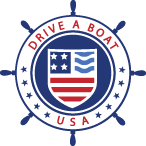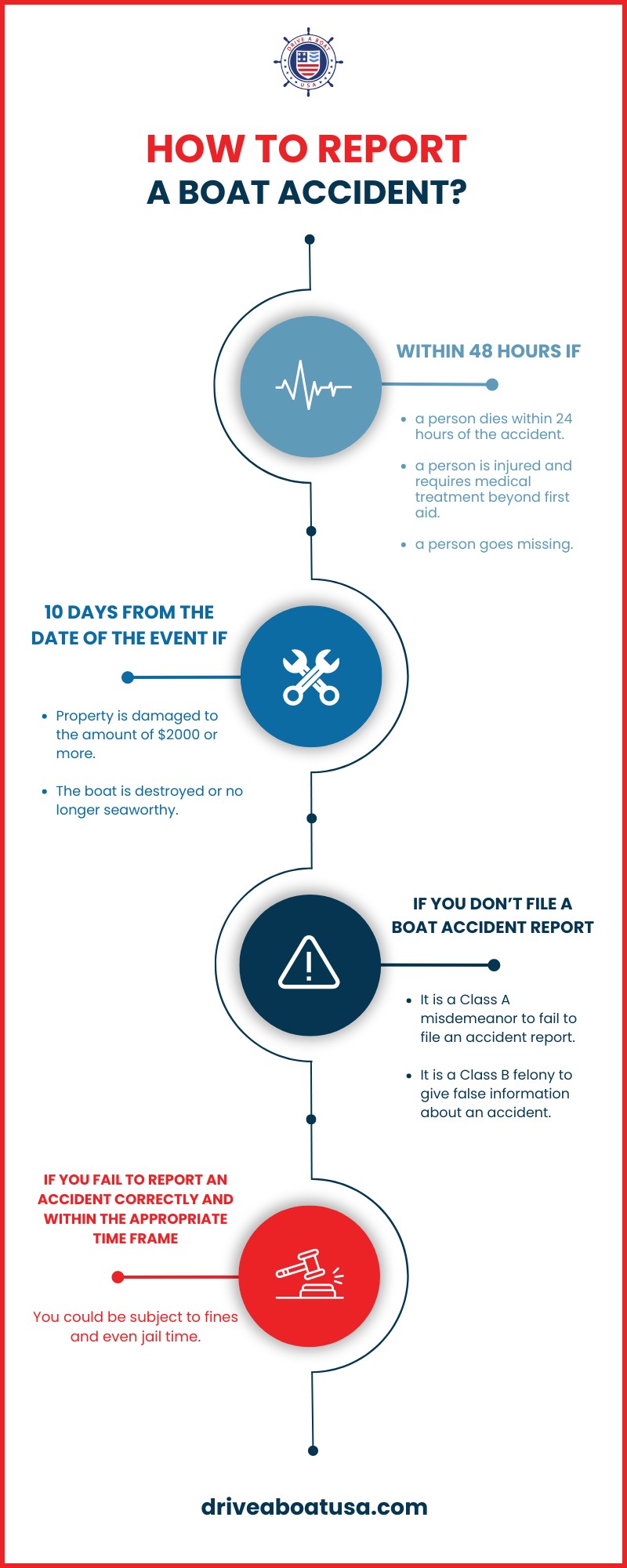Written Boating Accident Report Requirements
Federal Law specifies that you have to file an accident report following many types of recreational boating accidents. Not filing a required report could result in large fines or even jail time, so it’s a task that you need to take seriously!
 Types of boat accidents that need to be reported
Types of boat accidents that need to be reported
The United States Coast Guard specifies that several types of boating accidents have to be reported no matter where you are in the country. This applies when:
- A person dies as a direct result of the accident
- A person is injured and requires medical treatment beyond first aid as a direct result of the accident
- A person goes missing as a direct result of an accident
- Property is damaged (to the amount of $2000 or more) as a direct result of the accident
- The boat or any related equipment or machinery is destroyed or no longer seaworthy as a direct result of the accident.
If you are in a collision or there is a fire on your boat, you may need to report the incident even if the above criteria do not apply.
Boating accidents that may not need to be reported
Boating accidents that do not result in significant harm or damage, such as running aground, capsizing or falling overboard, may not require a written accident report.
Accidents that occur on or near the water but are not the direct result of boating per se may require different types of reporting. These include, for example:
- carbon monoxide exposure
- casualties sustained while swimming near a vessel
- casualties sustained while interacting with marine life or other passengers
- injuries resulting from the consumption of alcohol or other drugs while on board
- accidents involving towing or trailering a boat
If you aren’t sure whether you need to make a report, refer to your State reporting authority. Note: it’s a good idea to have local reporting agency phone numbers on board at all times.
Timeline for reporting a boat accident
A report must be filed within 48 hours if:
- a person dies within 24 hours of the accident
- a person requires medical attention as a result of the accident
- a person goes missing as a result of the accident
Under all other circumstances, you have 10 days from the date of the event to submit your report.
Who can file an accident report?
The person driving the boat should file the accident report. If they are physically or mentally incapable of doing so, the responsibility falls to the boat owner.
How to file a report following a boat accident
To file a report, you’ll need to have accurate information about the incident.
What to do when the accident happens
- Immediately stop your vessel and identify yourself to the other party involved.
- Provide assistance or call for emergency services as needed.
- Carefully write down all relevant details, including the date, time, location, names of people involved, and environmental conditions at the time of the accident.
Filing the report
Boating accidents within the US need to be reported to the relevant local authority. If your boat is registered in a different state, you may need to file a second report there.
Most states accept the U.S. Coast Guard Recreational Boating Accident Report (Form CG-3865). However, some have their own forms and additional reporting requirements.
What happens if you don’t file an accident report?
It is a Class A misdemeanor to fail to file an accident report (or to fail to comply with the requirements of the report when the accident involves property damage).
It is a Class B felony to give false information about an accident (or to fail to comply with the requirements of the report when the accident results in death or personal injury).
If you fail to report an accident correctly and within the appropriate time frame, you could be subject to fines and even jail time.
Learn about US boating laws from Drive A Boat USA
Complying with boat accident reporting requirements is an important responsibility for all boat operators. Providing boating accident information helps authorities track trends, identify safety issues, and develop regulations to improve boating safety overall.
It’s one of many types of paperwork you need to have in order to follow US boating laws, in addition to registration and titling your boat and carrying a state-specific boater card. And always remember to file a float plan every time you go out, so you can be rescued if needed.
Get your state-approved boating license today from Drive A Boat USA, in New York, California and Florida!


 Types of boat accidents that need to be reported
Types of boat accidents that need to be reported